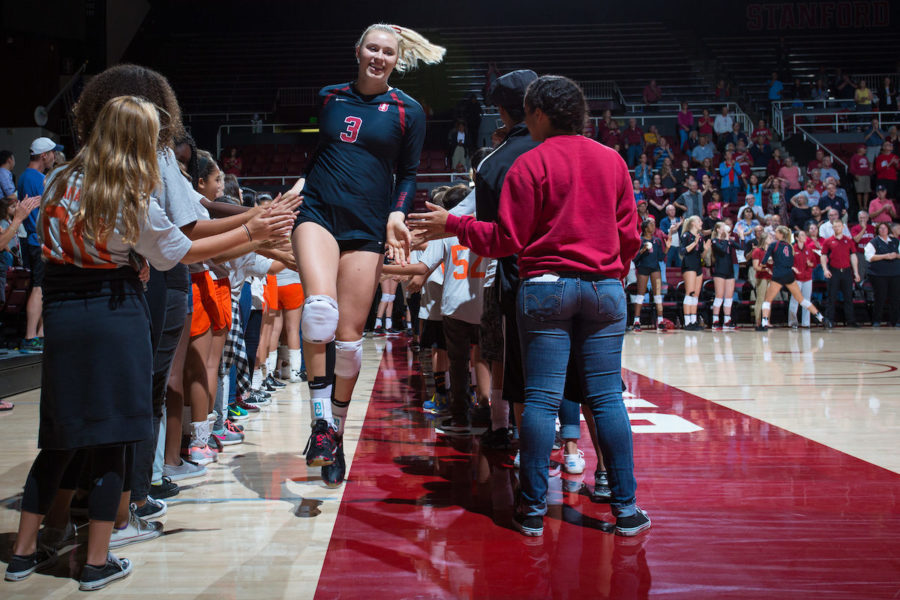Stanford senior volleyball superstar Hayley Hodson recently medically retired from volleyball after four major concussions that resulted in post-concussion syndrome. She took medical leave in early October of her sophomore season and officially retired this June.
“After a decade competing at a high level in volleyball,” Hodson wrote on her blog this past June, “I’m stepping aside to allow myself the time and space to heal, pursue new passions, and protect my long-term brain health”.
As a Cardinal player, Hodson earned All-American honors, was 2015 NCAA Freshman of the Year, co-captain of the Stanford team and a tenacious player in the volleyball world.
Hodson suffered from post-concussion syndrome, “a diagnosis used to describe post-concussion complications that linger weeks and months after the standard recovery period,” she wrote. “Symptoms include migraines, dizziness, insomnia, impaired concentration, anxiety, and depression.”
Post-concussion syndrome derailed more than just Hodson’s volleyball career.
“The course of my college career has been changed, my potential pro career stripped from me, and my long-term health jeopardized. It’s quite scary, actually,” Hodson stated in her blog. “That being said, I don’t regret a minute of my volleyball journey and am thankful for everything it taught me.”
Hayley described her painful journey of dealing with concussions and realizing that not everybody had the interest of her personal health in mind.
“I was pressured into believing that I was okay and put on a court while still cognitively compromised. I didn’t realize it, but I never really got better.” Hayley wrote. “When I got hit in the head while blocking at UCLA…I looked over at the sideline where my coach and trainer stood and realized that they weren’t going to sub me out despite the ball that had just ricocheted off my head into the rafters of Pauley Pavilion.”
After the announcement, Director of Athletics Bernard Muir expressed a statement of support for Hodson: “Hayley is part of our Stanford family, and we wish her all the best in the continuing pursuit of her Stanford degree.”
Despite her frustration, Hodson sees opportunity from the aftermath of her injuries.
“The more I learn about concussions, the more I realize that there is still a lack of education about them, especially when it comes to women’s brain injuries,” she said. “As I step out into this next chapter of my life, I feel like I have a responsibility to tell my story and raise awareness for brain injuries, female concussions, and student-athlete rights.”
Hodson will continue her undergraduate degree at Stanford. She plans to study abroad at Oxford in the fall.
Contact Lauren Traum at 19ltraum ‘at’ castilleja.org
